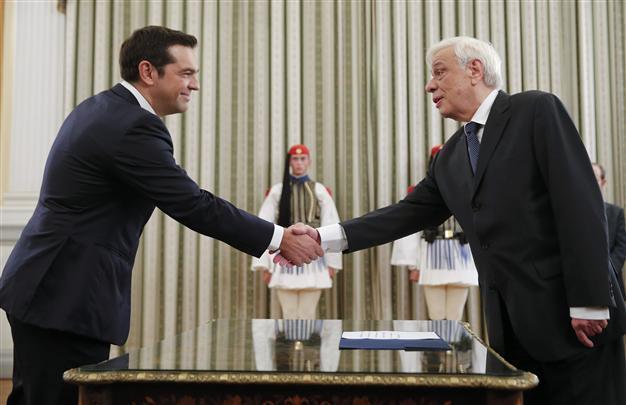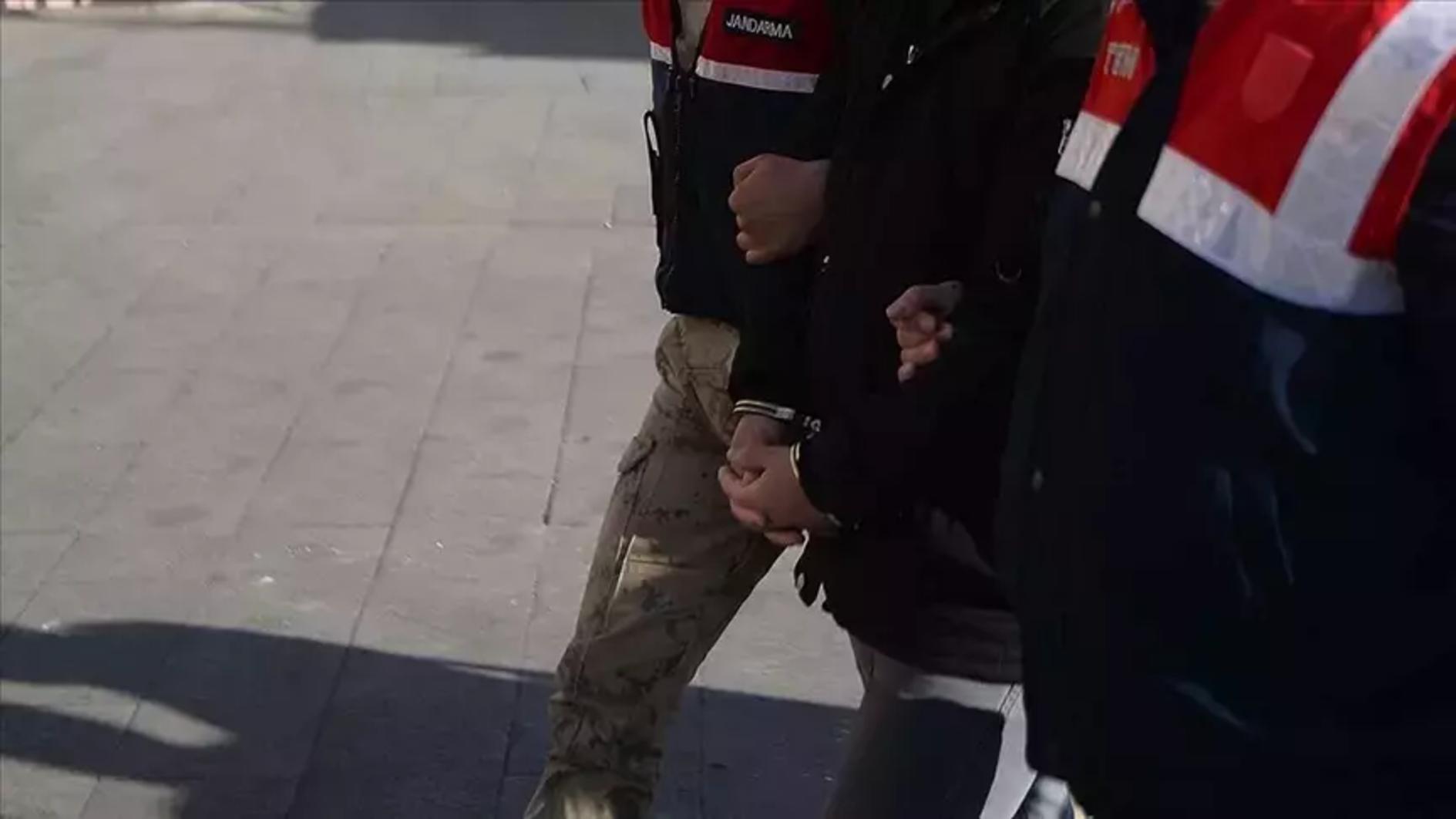New Tsipras government takes oath of office in Greece
ATHENS - Agence France-Presse

Leftist Syriza leader and winner of Greek general election Alexis Tsipras is sworn in as prime minister by Greek President Prokopis Pavlopoulos during a ceremony at the presidential palace in Athens, September 21, 2015. Reuters Photo
Greek Prime Minister Alexis Tsipras' new left-wing government took office on Sept.23 with painful economic reforms ahead and a growing migration crisis that threatens to open a rift in the EU.Tsipras barely had time to see his cabinet sworn into office before flying to Brussels for an emergency migration summit, a day after EU ministers forced through a controversial deal to relocate 120,000 refugees, angering several member states in the process.
In statements after his election victory on Sept.20, Tsipras said Europe had failed to give adequate support to Athens and called for "shared responsibility" in managing the influx of migrants from Syria and elsewhere.
The new Greek cabinet is almost a carbon copy of the previous government headed by the 41-year-old premier, who resigned in August after seven months in office after losing his majority when anti-euro hardliners in his Syriza party quit in anger over an economic reform-and-rescue deal.
The liberal daily Kathimerini said on Sept.23 that Tsipras had been careful to reward loyal Syriza cadres who supported him against the hardliners.
"Tsipras' basic criterion was to keep the balance in his party... and reward those who stood at his side on the bailout issue," the daily said.
Sending a signal to creditors, Tsipras kept the same team that negotiated the country's latest EU bailout.
Pro-euro Euclid Tsakalotos retains the finance ministry portfolio while George Houliarakis, the reclusive expert who led the country's rocky bailout negotiations with EU and IMF envoys, has been appointed junior finance minister.
EU economic affairs commissioner Pierre Moscovici expressed delight to have Tsakalotos back at the post.
"Happy to continue working together to help Greece," Moscovici tweeted on Sept.23.
Several members of the cabinet noted that their first order of business was to revive the Greek economy, which is still bound by capital controls imposed by Tsipras in June to avert a deposit run.
"Our goal is recovery and reconstruction," deputy prime minister Yiannis Dragasakis told reporters before the ceremony.
"We have the prerequisites to overcome the difficulties," he said, adding that the government wanted to leave "left-wing fingerprints" at the end of its term.
Senior Syriza figures also insist they will propose alternative policies to mitigate some of the toughest bailout cuts.
"We will try to implement our policies, which include the bailout, but there are limitless possibilities for work that reduces the negative impacts of the deal," said state minister Alekos Flambouraris.
Panos Kammenos, the boisterous head of the nationalist Independent Greeks (ANEL) party in the government coalition, was once again given the defence portfolio.
Nikos Kotzias, the former senior Communist who clashed with EU peers over the Ukraine crisis, returns to the foreign ministry, and the key migration portfolio remains in the hands of Ioannis Mouzalas, who as interim minister before the election helped ease pressure on Greek islands swamped by refugee arrivals.
One new arrival has raised eyebrows -- an ANEL lawmaker who has repeatedly made anti-Semitic comments on social media, and was appointed junior works minister.
The new government has 16 ministers and 30 deputy ministers, but only four women including the spokeswoman.
Topping Greece's agenda is the need to push through the painful austerity measures demanded by Greece's EU-IMF creditors, in order to boost growth and to enhance Athens' credibility in foreign eyes.
The Tsipras administration hopes this would allow it to achieve its goal of opening negotiations to reduce Greece's soaring debt.
In a statement sent to AFP, the IMF said it was looking forward to working with the new government.
"We welcome the completion of the electoral process in Greece and look forward to working with the new government on the policies needed to put Greece on a path for sustainable growth," the global lender said.
The clock is ticking, with a review due in late October by the lenders on whether Athens is abiding by the reform programme. At stake for the new government will be the release of a new three-billion-euro ($3.3-billion) tranche of aid.
In his second mandate, Tsipras also hopes to strengthen Syriza's left-wing credentials by fighting the systemic corruption and cronyism that has tainted Greek political life for decades, while tackling the migrant crisis with more efficiency and humanity.
Debt-strapped Greece has been the first port of call for some 310,000 refugees from war and persecution in the Middle East and elsewhere this year, but almost all have moved on to seek a new life in more prosperous economies to the north.
Some 4,000 migrants riding flimsy vessels from Turkey arrive on the Greek islands every day.
















